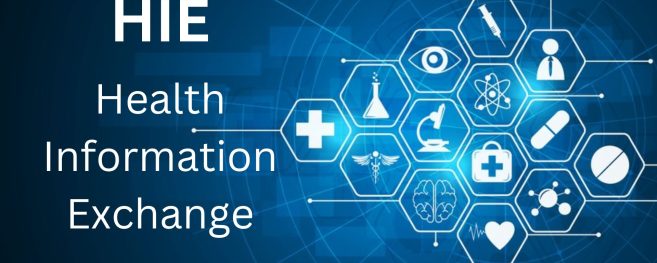What Is HIE and Why Is It Important?

A Health Information Exchange, or HIE, is a secure network that lets healthcare providers share patient data. This is important because it enables doctors to access a patient’s medical history, regardless of where they are treated. Without an HIE, doctors would have to request this information from the patient’s previous doctor, which can be time-consuming and inconvenient for both the doctor and the patient.
Medical websites give you the credibility you require to convert prospects into patients. With a verified online presence, you encourage patients to book appointments with you. You also develop trust and transparency with potential and current patients, which is essential for building a successful medical practice.
Read more: 3 Pros of Having Hospital and Healthcare Websites.
HIE is a crucial part of the healthcare ecosystem because it helps to improve patient care. When doctors access a patient’s complete medical history, they may make more informed decisions about their treatment. Read on to understand the benefits of HIE for your patients, doctors, and healthcare organization.
1. Improved Patient Care
Patient care is improved when healthcare providers have quick and easy access to a patient’s complete medical history. HIEs allow providers to view a patient’s records in one place, which can help them make more informed care decisions.
2. Reduced Duplication of Services
If a patient’s records are available through an HIE, providers can avoid ordering tests or procedures that have already been done. This reduces the cost of care and the time a patient spends in the doctor’s office or hospital.
3. More Efficient Healthcare Delivery
Healthcare centers that are a part of an HIE network can easily and quickly access patient information from other providers. This helps avoid duplicate tests, reduces chances of transcription errors, and keeps everyone on the same page regarding a patient’s care.
Additionally, HIEs help to improve communication between providers and patients. Patients will be more involved in their care when test results or other vital information is easily accessible. This increases the likelihood of better outcomes and can help to reduce costs associated with follow-up appointments and other unnecessary tests or procedures.
3. Enhanced Data Quality and Accuracy
HIEs provide a single, accurate source of patient data that all authorized providers can use. This is especially vital for patients with complex medical histories who see multiple specialists. Having all of a patient’s information in one place, HIEs help ensure that providers have the most up-to-date and accurate information possible, improving the quality of care.
4. Improved Population Health Management
Population health management involves analyzing data to identify patterns and trends in health. This information can be used to develop strategies for improving population health.
Health information exchanges make it possible to collect data from various sources and then analyze it to identify patterns and trends in health.
For example, suppose an HIE collected data on the number of people with diabetes in a particular area. In that case, this information could be used to develop strategies to improve the population’s health.
HIE is a network of digital information exchanges allowing healthcare providers to securely share patient medical histories and treatment plans. Sequence Health offers a medical record portal, a secure, HIPAA-compliant platform that allows you to collect and store patient data from any source – EHRs, paper charts, billing systems, etc.





